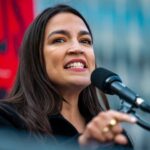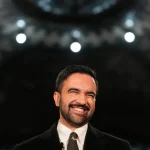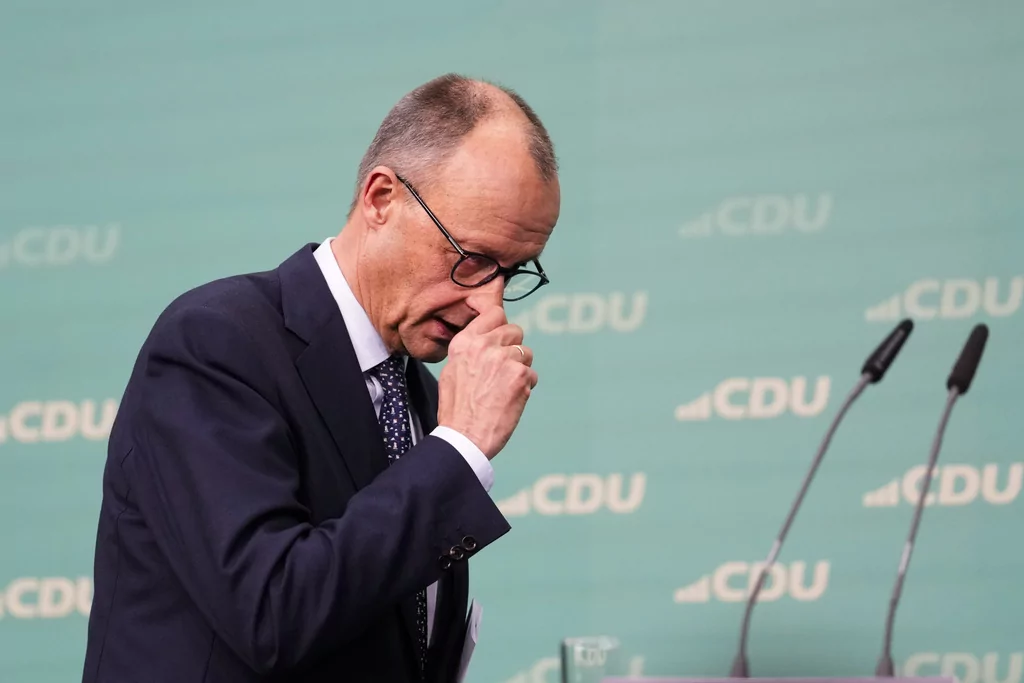
Officials warn that Germany’s parliamentary elections on Sunday might be the last gasp of normalcy in the Bundenstag if establishment parties don’t fulfill voters’ expectations.
The center-right Christian Democratic Union and its Bavarian sister party, the Christian Social Union, won the Feb. 23 election with 28.5%. It’s an uncomfortably lackluster victory in a country that is reaching a conservative high water mark.
The Alternative for Germany, or AfD, a right-wing party that accuses the CDU of being just as feckless as its left-wing Social Democratic Party rivals, came in second place with 20.8%. The party almost doubled its support compared to the last election.
CDU leader Friedrich Merz, the next chancellor of Germany, has been far from celebratory following his party’s win, lamenting that the results are a “final warning” for the Bundestag’s moderate establishment.

Merz called the AfD’s massive expansion a “real warning bell, a real alarm bell for the political parties of the center in Germany to come up with shared solutions.”
The center-right party will be forced to form a coalition with the Social Democrats, who collected just 16.4% of the electorate. A deal with the Green Party’s mere 11.6% would not push the CDU over the 50% threshold to form a government, meaning it would not be a viable alternative.
The Free Democracy Party and the Bündnis Sahra Wagenknecht both failed to reach 5%, knocking them out of parliament entirely.
The most progressive party in German politics, known simply as The Left, is far less popular than AfD but pulled a surprise 8% turnout — also coming close to doubling it 4.9% results from 2021.
AfD and The Left’s gains are creating a pincer effect on the center. The CDU and SPD are traditionally seen as bickering rivals, but the flight of voters to the peripheries is going to necessitate consistent collaboration.
“Friedrich Merz must brace himself now,” warned Jan van Aken, one the leaders of The Left.
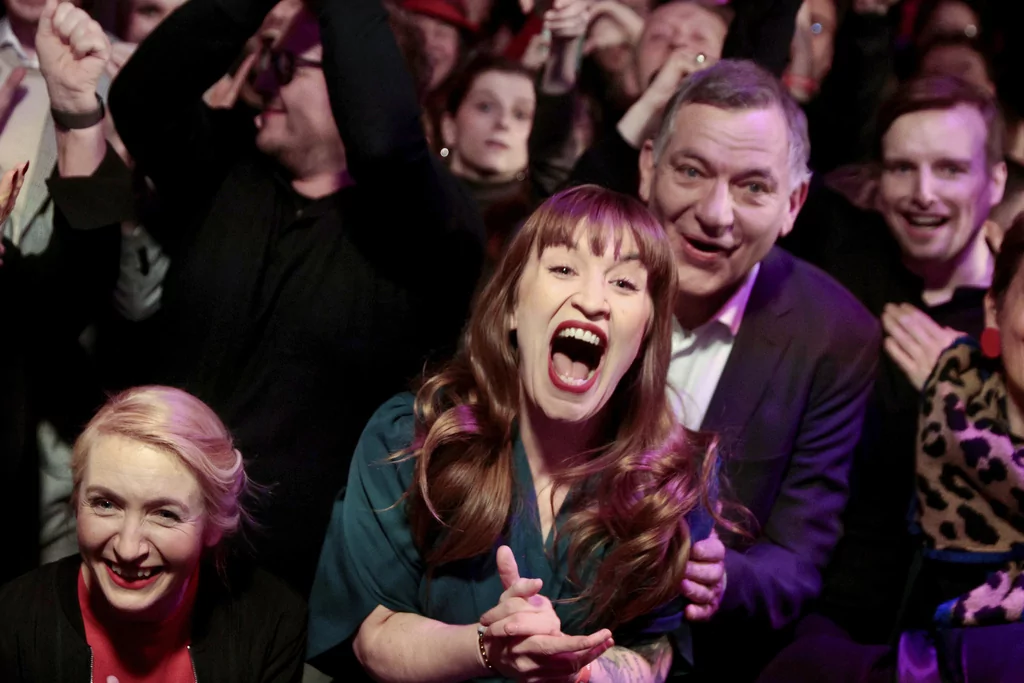
No one is expecting the CDU to find help from its rightward counterparts — Merz vowed during a debate last week that he would not entertain the idea of forming a coalition with the AfD.
His party actually has no intention of working with the AfD at all, affirming that it will maintain the long-standing “firewall” in German politics that discourages voting alongside parties deemed too “far-right.”
AfD supporters are suffering mixed feelings with their second-place position. The most optimistic outcome for the party would have been hitting 25% — a threshold that would allow them to unilaterally vote for official inquiries into government affairs.
One-fifth of the electorate means nothing for their ability to enact change, but leadership still celebrated the outcome as a symbolic victory with potential to flip the table next election.
“We doubled our results in three years and took a major milestone yesterday!” AfD leader Alice Weidel wrote Monday on social media. “Our goal is to become the strongest party in Germany!”
AfD supporters were enraptured by Vice President JD Vance’s address to the German government in Munich earlier this month in which he encouraged establishment parties to end the “firewall” and listen to the public’s concerns.
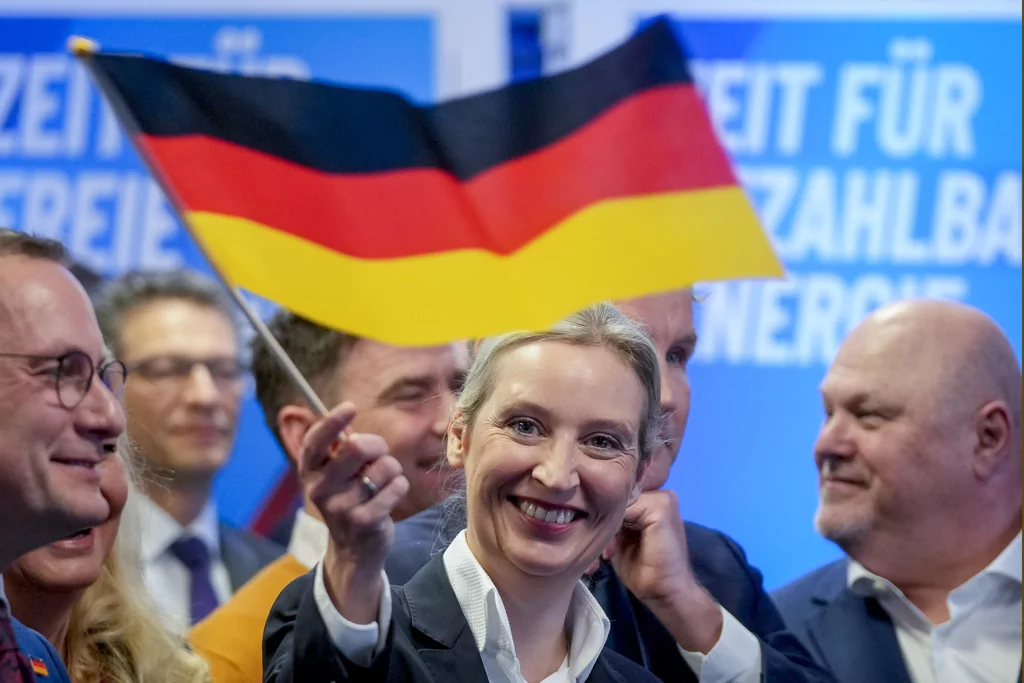
CLICK HERE TO READ MORE FROM THE WASHINGTON EXAMINER
“What no democracy — American, German, or European — will survive is telling millions of voters that their thoughts and concerns, their aspirations, their pleas for relief are invalid or unworthy of even being considered,” Vance said. “Democracy rests on the sacred principle that the voice of the people matters. There’s no room for ‘firewalls.’ You either uphold the principle or you don’t.”
Olaf Scholz, the outgoing SDP chancellor, dismissed the speech as inappropriate and criticized the vice president for instructing the German government how to manage its own parliament.

